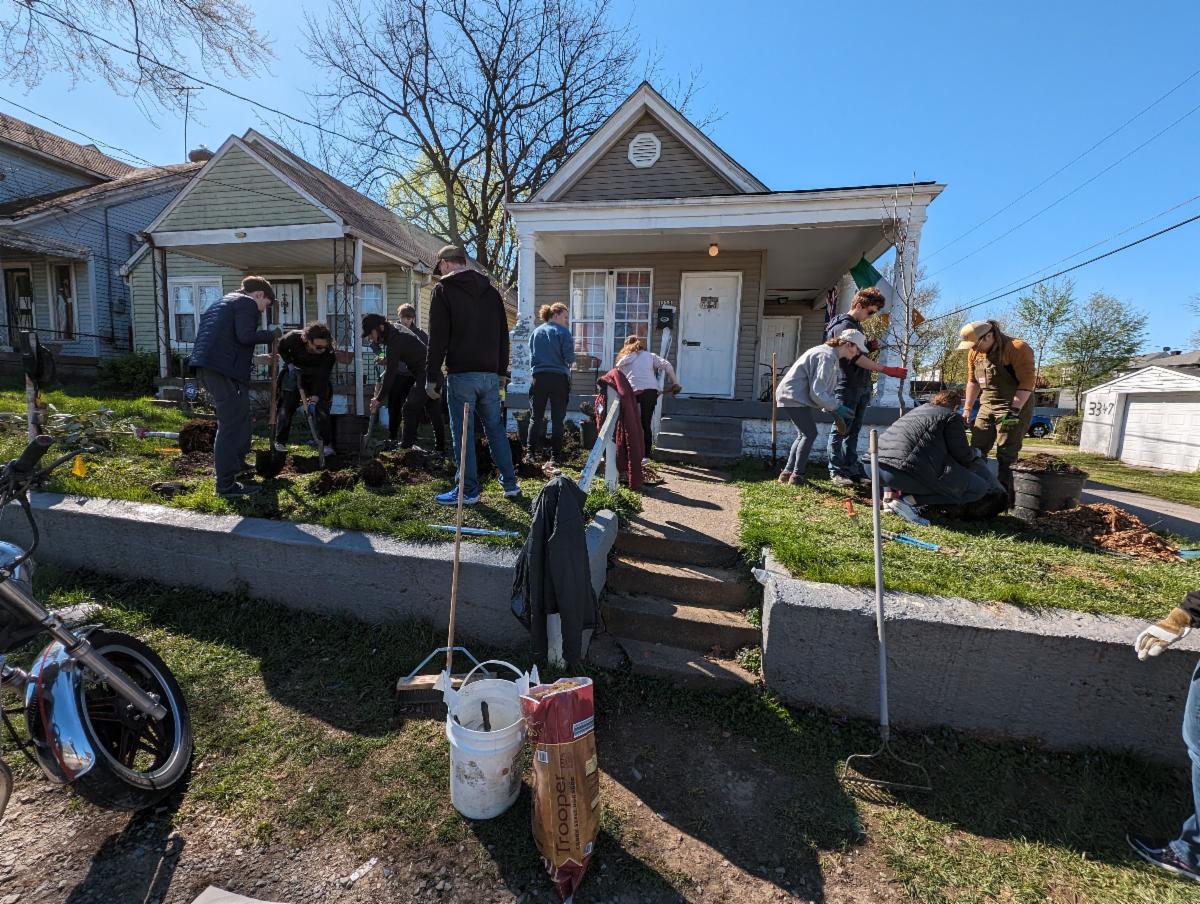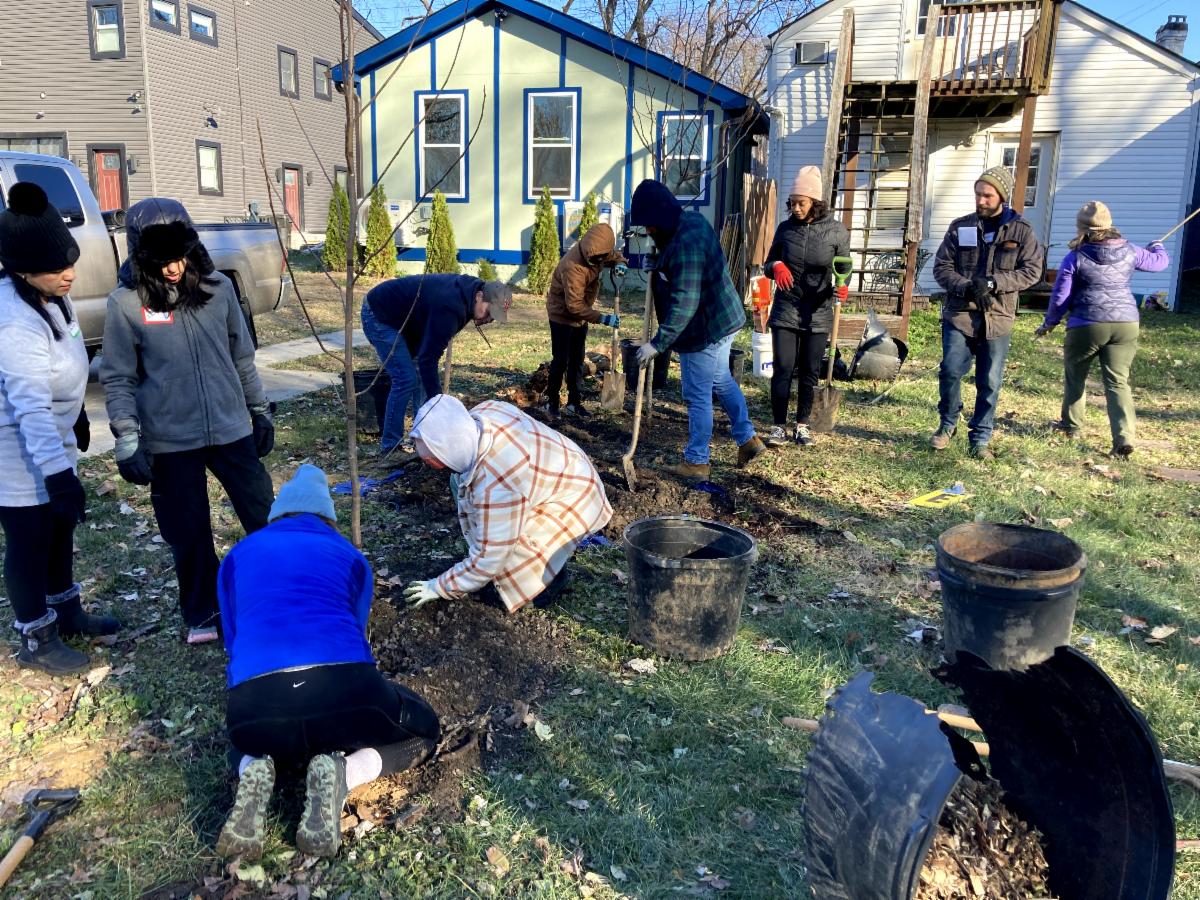LOUISVILLE, Ky. (October 14, 2025) – Louisville’s West End is losing trees faster than almost any
other part of the city, leaving residents vulnerable to rising heat and shrinking
access to green space. A new partnership between Kentucky State University and Louisville
Grows aims to change that.
Kentucky State’s Cooperative Extension teams in the College of Agriculture, Health,
and Natural Resources will work alongside Louisville Grows, a successful nonprofit
that has planted more than 8,000 trees since its founding in 2009. Together, they
will deliver training that equips adults with marketable skills across conservation,
urban forestry, horticulture, and community agriculture.
“Cooperative Extension exists to connect university research with the needs of communities,”
said Dr. Tyrell Kahan, Associate Extension Administrator at Kentucky State. “Partnerships
like this one show how that mission can improve lives while preparing people for the
opportunities of tomorrow.”
Christine Brinkman, executive director of Louisville Grows, said the partnership builds
on more than a decade of work. “Our longstanding commitment has been to strengthen
communities through urban forestry and community agriculture,” Brinkman said. “Bringing
horticulture more intentionally into the mix allows us to expand that work with research-based
training that creates healthier neighborhoods and new workforce opportunities.”
The collaboration aims to strengthen the agricultural workforce by focusing on adult
training in sustainable practices and emerging environmental careers. Classroom instruction
will be paired with fieldwork in greenhouse management, tree planting, orchard development,
soil restoration, and community-based agriculture. Kentucky State specialists will
support curriculum design, credentialing, and evaluation, while faculty contribute
expertise in urban agriculture, sustainable production systems, and workforce pathways.
According to Jody Thompson, Agriculture & Natural Resources Program Leader for Kentucky
State, the initiative highlights the University’s commitment to serving communities
across the Commonwealth.
“Louisville Grows has built a strong foundation for community-driven environmental
progress,” Thompson said. “By joining forces, we can extend the University’s land-grant
mission into Louisville’s neighborhoods, ensuring adults gain the skills needed for
meaningful careers while communities benefit from stronger food systems and resilient
landscapes.”
Dr. Suraj Upadhaya, assistant professor of sustainable systems at Kentucky State who
will be part of the project, emphasized the broader benefits. “From restoring the
city’s tree canopy to advancing horticulture and building food security, this partnership
connects local needs with statewide expertise,” he said. “Our goal is to prepare job-ready
adults while creating measurable community impact.”
“This initiative is about opportunity for adults who want to retool their skills and
find meaningful work,” added Alethea Bernard, co-principal investigator at Kentucky
State. “When training connects directly to community needs, it strengthens both participants
and neighborhoods.”
By creating replicable training and building a pipeline of adults prepared for careers
in horticulture, conservation, and community agriculture, the program aspires to be
a model for other metro areas dealing with similar challenges. This will expand workforce
readiness beyond the West End to other communities facing the urgent need for more
trees, healthier soils, and renewed green space.

